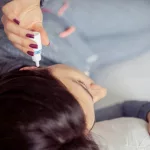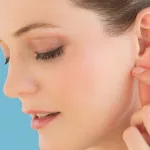Hey there, friend. If you’ve ever taken a bedtime pill and then noticed the next night felt like a marathon of tossing and turning, you’ve probably bumped into rebound insomnia. It’s that sneaky surge of wakefulness that shows up right after you stop a sleep aid. In the next few minutes, I’m going to walk you through why it happens, who’s most likely to feel it, what the symptoms look like, and—most importantly—how to get through it without losing your sanity.
What Is Rebound Insomnia?
Quick definition: Rebound insomnia is a temporary worsening of sleep that occurs when you discontinue a sleep‑inducing medication. Your brain, which got used to the drug’s “push‑to‑sleep” signal, suddenly finds itself without that help and reacts by keeping you up longer than usual.
Key characteristics
- Increased nighttime wakefulness (you might wake up several times).
- Longer sleep latency (the time it takes to drift off).
- Early‑morning awakenings that leave you feeling groggy.
- Daytime fatigue that can feel like a cloud hanging over you.
How common is it?
Research shows that anywhere from 10 % to 30 % of short‑term hypnotic users experience a rebound effect, with the likelihood climbing the longer you’ve been on the medication. Healthline points out that the symptom pattern can differ from person to person, so don’t be surprised if yours looks a little different.
Why It Happens
Neuro‑chemical shift
Most sleep pills work by boosting the activity of GABA, the brain’s natural “calm‑down” neurotransmitter. After weeks of extra GABA help, your brain down‑regulates its own production. When you stop the medication, there’s a short gap before your brain can rebalance, and that gap feels like a sleepless night—or several.
The role of drug half‑life
Think of half‑life as the speed at which a medication leaves your system. Short‑acting drugs (like triazolam or zolpidem) clear out quickly, leading to a sharper, often more intense rebound. Longer‑acting agents (such as temazepam) linger, giving your brain a gentler “wean‑off” period.
According to Verywell Health, the intensity of rebound insomnia frequently mirrors the half‑life of the drug you stopped.
Receptor “reset” timeline
- Short‑acting hypnotics: 1–3 days of noticeable wakefulness.
- Intermediate‑acting benzodiazepines: up to 1 week.
- Long‑acting benzodiazepines or chronic high‑dose use: several weeks, sometimes a month or more.
Who Is Affected
Medication categories
Below is a quick snapshot of the most common culprits. These aren’t the only ones, but they’re the heavy hitters you’re most likely to run into.
| Medication | Typical Half‑Life | Rebound Risk* |
|---|---|---|
| Triazolam | ≈ 2.8 h | High |
| Zolpidem (IR) | ≈ 2.5 h | Moderate |
| Eszopiclone | ≈ 6 h | Moderate‑High |
| Temazepam | ≈ 11 h | Low |
| Melatonin (OTC) | – | None (per Snooze University) |
*Risk ratings are based on published studies and clinical observations.
Personal risk factors
- Age: Older adults often have slower drug metabolism, which can intensify rebound.
- Dosage & duration: Higher doses taken for months increase the odds.
- Underlying anxiety or depression: These conditions can amplify nighttime wakefulness.
- Abrupt cessation: Going “cold turkey” is the fastest lane to rebound.
Jane, a 62‑year‑old teacher, stopped her 5‑year Ambien routine overnight because she thought she could “just sleep naturally.” Within 48 hours she was awake at 2 a.m., feeling like a hamster on a wheel. After a gradual taper with her doctor’s help, the nightly alarms faded away. Jane’s story shows how a gentle plan makes a huge difference.
Symptoms & Timeline
Core insomnia symptoms
When rebound strikes, you’ll typically notice one or more of these:
- Difficulty falling asleep: You lie down, eyes heavy, but the clock keeps ticking.
- Frequent awakenings: You wake up multiple times, sometimes with a racing mind.
- Early morning wake‑up: The alarm isn’t needed because you’re already up at 5 a.m.
- Daytime fatigue: A lingering fog that makes even simple tasks feel heavy.
Timeline by medication
Here’s a rough guide (feel free to compare it with your own experience):
- Zolpidem: 1–3 days of heightened wakefulness.
- Eszopiclone: Up to 2 weeks of mild to moderate rebound.
- Long‑acting benzodiazepines (e.g., diazepam): May linger 2–4 weeks.
If you notice symptoms persisting beyond these windows, it’s probably not rebound alone—your underlying insomnia might need a deeper look.
Withdrawal insomnia versus rebound insomnia
Both terms describe sleeplessness after stopping a drug, but “withdrawal insomnia” emphasizes the broader withdrawal syndrome (tremors, anxiety, etc.), while “rebound insomnia” spotlights the specific worsening of sleep beyond your baseline. In everyday conversation the two often overlap.
Ease The Transition
Tapering the dose
The gold standard for avoiding a nasty rebound is a slow, doctor‑guided taper. Imagine you’re lowering the volume on a speaker—not turning it off suddenly. A typical schedule might look like this:
- Reduce the dose by 10‑25 % every 3–5 days, depending on how you feel.
- Keep a simple spreadsheet or a phone reminder so you don’t accidentally jump back up.
- Check in with your prescriber weekly to tweak the plan.
Even a modest taper can shave days off the rebound window and keep you from feeling like you’ve been hit by a sleep “tsunami.”
Non‑drug sleep supports
When the pills are on the way out, give your brain some alternative tools:
- CBT‑I (Cognitive Behavioral Therapy for Insomnia): A structured program that reshapes thoughts and habits around sleep. It’s proven to be as effective as medication for many people.
- Sleep‑hygiene checklist: Keep the bedroom dark, cool, and gadget‑free. Reserve the bed for sleep (and intimacy, not work).
- Relaxation techniques: Deep‑breathing, progressive muscle relaxation, or a short meditation can calm the nervous system.
- Blue‑light reduction: Use “night‑mode” settings after 8 p.m. and consider amber glasses if you’re a night‑owl.
Can melatonin help?
Yes—melatonin can be a gentle ally because it doesn’t cause rebound. Snooze University notes that melatonin supplementation does not lead to withdrawal insomnia, and it may help reset your circadian rhythm when you’re tapering off a stronger hypnotic.
When a short‑term backup is needed
Sometimes a brief “bridge” medication is appropriate, especially if the rebound is severe and you need to function at work or school. Options like low‑dose diphenhydramine or a short‑acting prescription taken only for a few nights can buy you time—but only under a doctor’s supervision. The goal is still to wean off, not to start a new dependency.
When To Call a Healthcare Professional
Most rebound episodes settle on their own, but keep an eye out for red flags that signal it’s time to ring the doctor:
- Symptoms lasting more than two weeks: Persistent insomnia could mean your underlying sleep issue isn’t resolved.
- Severe mood changes: Depression, anxiety, or suicidal thoughts require immediate attention.
- Physical withdrawal signs: Tremors, seizures, pounding heartbeats—these aren’t typical rebound insomnia.
- Disruption of daily life: If you can’t function at work, school, or caring for family, professional help is warranted.
When you do call, be ready to share:
- The specific medication(s) you stopped and for how long.
- Your taper schedule (if you tried one).
This information lets the clinician tailor a plan—maybe a slower taper, a switch to a different class of sleep aid, or a rapid start to CBT‑I.
Conclusion
Rebound insomnia is a perfectly understandable reaction to stopping sleep medication—a temporary, neuro‑chemical hiccup that can feel much worse than the insomnia you originally tried to fix. Knowing why it happens (the GABA dip and drug half‑life), who is most at risk (older adults, high doses, abrupt stops), and what the symptoms look like (nighttime wakefulness, early mornings, daytime fog) equips you to navigate the storm with confidence.
The best armor consists of a gentle taper, solid sleep‑hygiene habits, and, if needed, a short‑term bridge prescribed by a trusted clinician. And remember, you’re not alone—millions have walked this path, and many have come out the other side with stronger, more natural sleep.
Got your own rebound story? Or a tip that helped you get through the rough nights? Share it in the comments below—your experience could be the lighthouse for someone else. And if you’re still unsure about your next step, don’t hesitate to reach out to a sleep specialist. Your best night’s sleep is waiting, one thoughtful step at a time.


















Leave a Reply
You must be logged in to post a comment.